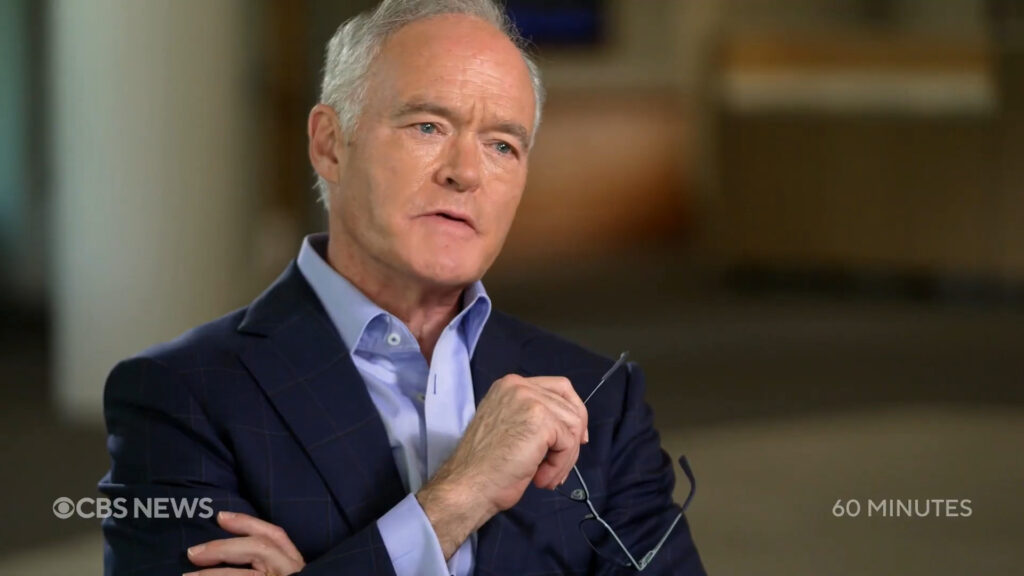The 58th season premiere of 60 Minutes features a compelling segment titled A Lonely Voice, where correspondent Scott Pelley sits down with Utah Governor Spencer Cox. This interview comes in the wake of the assassination of political commentator Charlie Kirk, an event that shocked the nation and intensified concerns over political violence in the United States. Cox, a Republican governor known for his pragmatic approach to governance, used the moment to call for unity and civility across political divides, delivering a message that stands out in today’s often polarized political climate.
The Assassination of Charlie Kirk and Its National Impact
Charlie Kirk’s assassination reverberated far beyond Utah, highlighting the rising threat of violence directed at public figures and commentators. Kirk, a prominent conservative voice, had amassed a significant following and frequently engaged in politically charged debates. His death prompted urgent discussions nationwide about the safety of political figures, the role of rhetoric in inciting violence, and the broader state of American political discourse.
Governor Cox’s response was notable for its tone and timing. While many political leaders focused on condemning violence in general terms, Cox’s message was a direct appeal for thoughtful engagement and civil dialogue. By calling for unity, he challenged the intensifying partisanship that has characterized much of recent American politics.
Spencer Cox’s Leadership in a Divided Political Landscape
Utah’s governor has consistently positioned himself as a moderate voice within his party, often emphasizing cooperation and pragmatic solutions over ideological purity. His decision to publicly call for civility after Kirk’s assassination reflects both his personal convictions and a recognition of the broader societal stakes. The interview explores why Cox felt compelled to speak out despite knowing that his message might not resonate with all members of his own party.
Cox also addresses the challenges facing elected officials today, particularly the tension between free speech and public safety. In an era when political rhetoric can quickly escalate into threats or acts of violence, leaders like Cox navigate a delicate balance — defending constitutional rights while advocating for restraint and responsibility in public discourse.
The Risks of Speaking Out
In A Lonely Voice, Pelley delves into the political risks Cox faces by taking a stand that could be viewed as unpopular among some conservatives. The segment highlights the pressures on politicians who attempt to moderate the conversation in a highly charged environment. Cox’s willingness to prioritize unity and civility, even at potential political cost, underscores his commitment to fostering a healthier political climate in Utah and beyond.
The story also raises questions about the role of leadership during times of crisis. Cox’s message serves as both a cautionary reminder and a hopeful appeal: even amid polarization and threats, elected officials can advocate for dialogue, respect, and understanding, aiming to reduce the likelihood of future violence and restore trust in the political process.
Broader Implications for American Politics
The segment resonates far beyond Utah, as the United States grapples with increasing political polarization, threats against public figures, and debates over the limits of free speech. Cox’s call for unity is a rare example of measured leadership, demonstrating how one voice can seek to influence public behavior and tone.
By placing this story at the forefront of its season premiere, 60 Minutes underscores the ongoing significance of civil discourse and the challenges facing political leaders in contemporary America. The segment provides viewers with both an intimate portrait of Governor Cox and a broader reflection on the state of political engagement in a country grappling with deep divisions.
This in-depth interview paints Spencer Cox as a governor willing to confront difficult truths and encourage dialogue, positioning him as a thoughtful voice amid an increasingly fractious political landscape.
More Feature Articles
- “He’s Right Behind You”: 20/20’s Season Premiere on Kristil Krug Homicide September 26 2025
- “The Phantom”: Dateline Reports on Kristil Krug Homicide September 26 2025
- “The Boy Who Killed His Twin”: 48 Hours Reports on Chilling Case of Benjamin Elliott September 27 2025
- 48 Hours Preview: “Coached to Kill” Airs Saturday September 27 at 9:30 PM
- 60 Minutes Reports on “A Lonely Voice”, “The Mystery of the Eagle S” & “Dana White” September 28 2025

